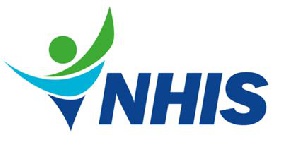Investigations conducted by The Finder have revealed that the Bibiani Government Hospital in the Western Region is owing fuel stations over GHc45,000 due to non-payment of piled up credit.
The hospital is unable to pay its creditors because the National Health Insurance Scheme (NHIS) owes the hospital claims amounting to over Ghc800,000.
As a result, oil companies who supplied fuel to the hospital to power its plants have decided not to offer any helping hand following the non-payment of the credit.
On Sunday, the hospital suffered a power outage and was unable to power the plants.
The development, unfortunately, led to the destruction of various operations at the hospital.
Most of the nurses at the time of the incident left their duties.
According to one of the nurses (name withheld), they couldn't work without light. "The few were using their mobile phones to work. They said they were even compelled to close when their batteries run out."
Due to that, patients with serious cases at the time also left the hospital to nearby private hospitals that were operating.
Reacting to these overwhelming problems in an interview, the Medical Superintendent of the hospital, Dr Alexander Obeng, said the hospital was in huge indebtedness.
As a result, he said management couldn’t afford purchasing fuel to power their equipment.
According to him, they owe Engen fuel station, in particular, an amount of GHc45,000.
“The management of Engen said they couldn't supply us again on credit. This led to the darkness the hospital had to experience from 1:25 pm to 9:30 pm.”
Dr Obeng disclosed that 95% of their clients were on the National Health Insurance Scheme (NHIS), which created the problem.
"The hospital has not been paid their claims since January, and if you calculate, it hovers around 18 billion old cedis."
Dr Obeng said he sometimes spends his own pocket money to offset operational bills before the hospital reimbursed.
Dr Obeng stated emphatically that due to these problems, the staff of the hospital has been asking for transfers.
Many are also tempted to leave if authorities of the NHIS do not pay the claims to make operations functional by the end of October this year.
Health News of Wednesday, 23 September 2015
Source: The Finder













